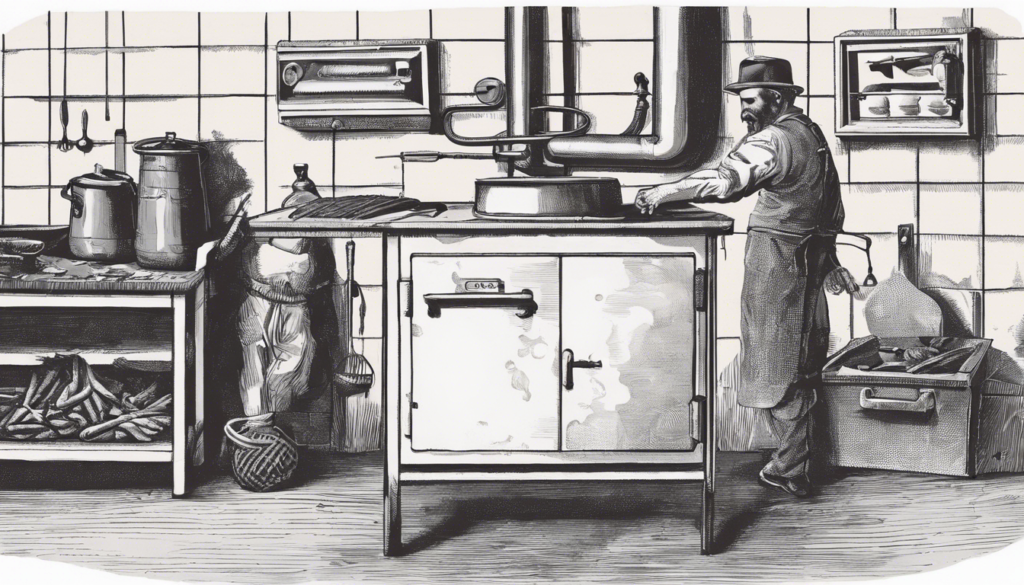Unraveling the Smoke: The Truth about Meat Smokers
From backyard barbecues to high-end restaurants, meat smokers have become a popular tool for adding unique flavor to meats. However, there’s a cloud of misconceptions surrounding meat smokers and their impact on health. This article aims to clear the smoke, debunk some common myths, and provide a comprehensive understanding of meat smokers and their impact on our health.
What is a Meat Smoker?
A meat smoker, as the name suggests, is a cooking apparatus used to smoke meats. The process involves slow-cooking meat at low temperatures, allowing the smoke to permeate the meat, giving it a distinct smoky flavor. This method not only enhances the taste but also tenderizes the meat, making it more enjoyable to eat.
There are several types of meat smokers, including wood smokers, charcoal smokers, gas smokers, and electric smokers. Each type has its unique characteristics and effects on the flavor of the meat. Wood and charcoal smokers, for instance, tend to impart a stronger smoky flavor compared to gas and electric smokers.
Common Myths about Meat Smokers
Despite their popularity, meat smokers have been shrouded in several myths, primarily concerning their health implications. Some of the most common myths include:
- Smoke from a meat smoker is dangerous
- Meat smokers cause cancer
- All smoked meat is unhealthy
These myths, often propagated by fear and lack of understanding, have deterred many from enjoying the benefits of smoked meat. This article aims to debunk these misconceptions and shed light on the truth about meat smokers.
Myth 1: Smoke from a Meat Smoker is Dangerous
The belief that smoke from a meat smoker is dangerous stems from the general understanding that inhaling smoke can be harmful to our lungs. However, it’s essential to differentiate between the smoke produced by burning materials like plastic or rubber and the smoke from wood or charcoal used in meat smokers.
Debunking Myth 1: Is Smoke from a Meat Smoker Really Dangerous?
While it’s true that inhaling any smoke can be irritating to the respiratory system, the smoke from a meat smoker is not inherently dangerous. The key lies in proper ventilation and not standing directly in the smoke for prolonged periods. Moreover, the smoke primarily interacts with the meat, not the cook.
Health Implications of Smoke from a Meat Smoker
When used correctly, a meat smoker does not pose significant health risks. The smoke produced is mostly carbon dioxide, water vapor, and trace amounts of other compounds that give the meat its smoky flavor. These compounds are not harmful when consumed in moderation. In fact, smoking meat can be healthier than other cooking methods that require the use of oils or fats.
Myth 2: Meat Smokers Cause Cancer
The myth that meat smokers cause cancer is likely born out of studies linking grilled meats to cancer. However, the risk is associated with the formation of harmful compounds when meat is cooked at very high temperatures, not specifically with smoking.
Debunking Myth 2: Do Meat Smokers Really Cause Cancer?
Smoking meat involves cooking at low temperatures over a longer period, which significantly reduces the formation of these harmful compounds. Therefore, the assertion that meat smokers cause cancer is not supported by scientific evidence.
Understanding the Science: How Does a Meat Smoker Work?
Meat smokers work by generating smoke that slowly cooks the meat. The smoke is produced by burning wood or charcoal, and the meat is placed on a rack above the heat source. The smoke circulates around the meat, imparting flavor and tenderizing the meat by breaking down its tough fibers.
Myth 3: All Smoked Meat is Unhealthy
This myth likely stems from the misconception that all smoked foods are high in sodium and unhealthy. While it’s true that some smoked foods are high in sodium, not all smoked meats fall into this category.
Debunking Myth 3: Is All Smoked Meat Really Unhealthy?
The healthiness of smoked meat largely depends on the type of meat used and the smoking process. For instance, lean meats like chicken or turkey can be a healthy choice when smoked. Moreover, smoking does not inherently add sodium to the meat; this comes down to the seasonings used.
Health Benefits of Smoked Meat
Smoked meat can be a part of a healthy diet. It’s a great source of protein and can be low in fat, depending on the type of meat used. Moreover, smoking meat preserves it, extending its shelf life and reducing the risk of foodborne illnesses.
Safe Practices When Using a Meat Smoker
Like any cooking method, it’s essential to follow safe practices when using a meat smoker. Ensure proper ventilation to avoid inhaling excessive smoke, maintain a safe distance from the smoker, and use heat-resistant gloves to prevent burns. Always follow the manufacturer’s instructions for your specific smoker model.
Conclusion: The Truth about Meat Smokers
While it’s essential to be aware of the health implications of our food choices, it’s equally important not to be swayed by unfounded myths. Meat smokers, when used correctly, are a safe and effective way to enhance the flavor of meats without adding unhealthy fats or oils. So, the next time you’re in the mood for a smoky barbecue, don’t let myths cloud your enjoyment.
References
For this article, we’ve drawn on scientific studies and authoritative sources to ensure accurate information. Some of these include studies published in the Journal of Food Science and the American Journal of Clinical Nutrition.


